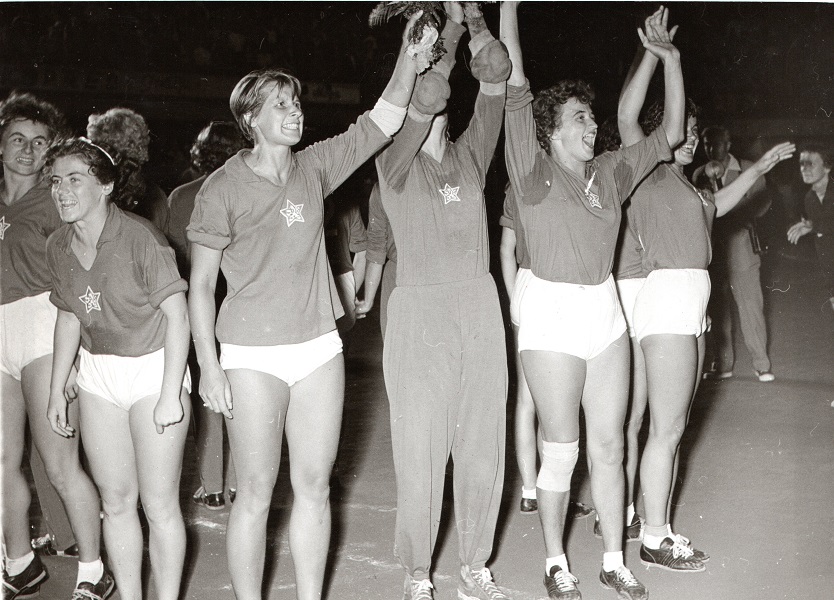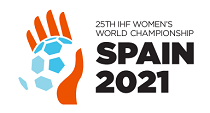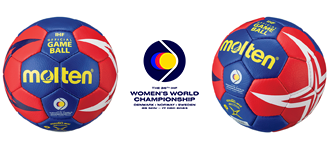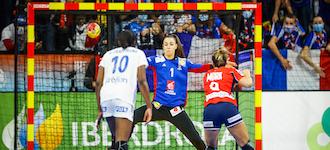A brief history of the IHF Women’s World Championship
30 Nov. 2021
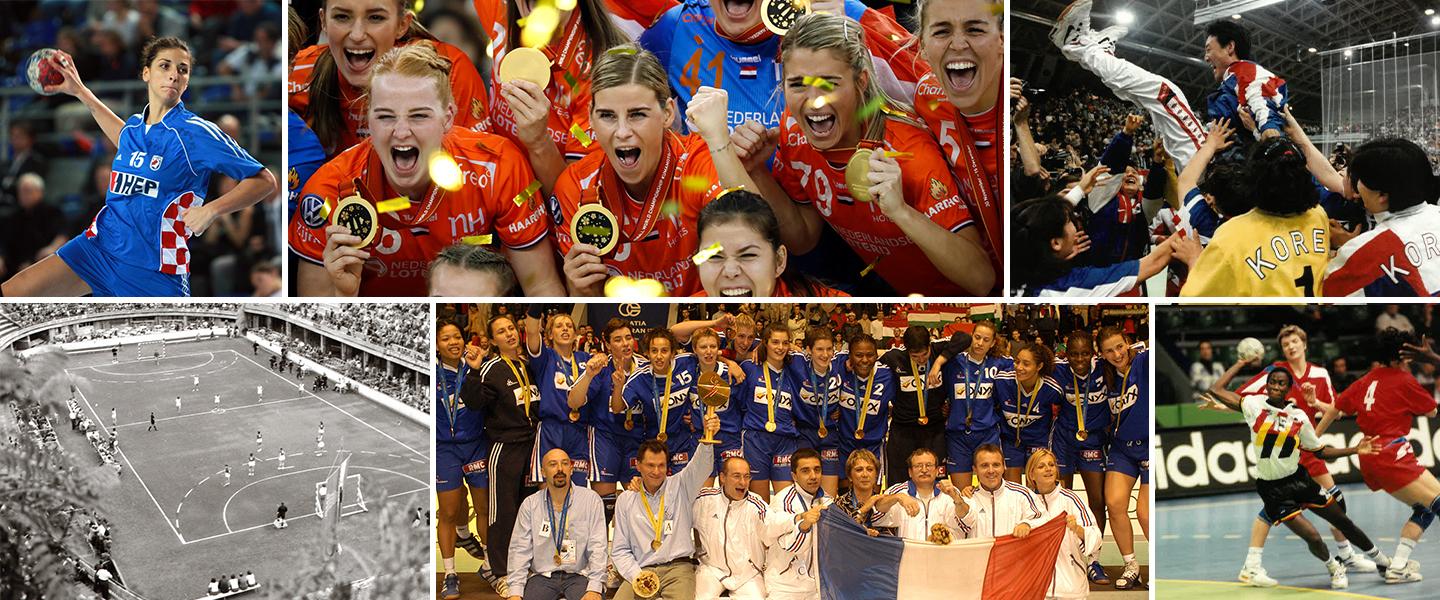
The 25th IHF Women’s World Championship is just around the corner, the first Women’s World Championship with a 32-team line-up. Spain 2021 is a testament to how far the competition has grown, 64 years after the first edition was hosted by Yugoslavia, featuring nine teams and 21 matches.
We will take a walk through the history, highlighting the best teams to have ever don the court in the world flagship competition, remembering the 14 countries who have won the trophy at least once, starting with the Netherlands, at Japan 2019, and finishing with Czechoslovakia, who won the inaugural final in 1957 with a 7:1 victory against Hungary.
Japan 2019: Netherlands strike gold for the first time
It was a long time coming for the Dutch side, a team who had qualified only 11 times prior to winning the trophy at the IHF Women’s World Championship. But it was a long time coming for Emmanuel Mayonnade’s side, who had already secured the silver medal at Denmark 2015, the bronze medal at Germany 2017, and also the silver and bronze at the Women’s EHF EURO in 2016 and 2018, respectively.
Great movie @parasitemovie but we disagree, @TheAcademy Best Motion Picture – Drama should’ve gone to “The 2019 World Title-Winning Goal at the Buzzer”, by @loisabbingh and @handbal_NL #Oscars pic.twitter.com/BrGP1ZFbUg
— International Handball Federation (@ihf_info) February 10, 2020
This was not a vintage performance – they lost more games both in 2015 and in 2017, but the Dutch side were in the best form of their lives when it mattered, securing a 33:32 win against Russia in the semi-final and winning by the slightest of margins against Spain, 30:29, in the final. Left back Lois Abbingh was the top scorer of the tournament, while centre back Estavana Polman won the MVP award.
Germany 2017: France start their domination
France had already won the title back in 2003, but the gold medal was the start of a hat-trick of trophies, as the IHF Women’s World Championship title was swiftly followed by gold at the Women’s EHF EURO 2018 and the Olympic Games Tokyo 2020. The French side was expected to be a defensive mainstay and a resilient side and they delivered exactly the kind of performance needed to secure the gold medal. In the knock-out phase, France conceded 22 goals to Montenegro in the quarter-finals, 22 against Sweden in the semi-final and only 21 against the mighty Norway in the final. They only had two players – centre back Grace Zaadi and left wing Siraba Dembele – in the All-star team, but the win was thoroughly deserved.
Denmark 2015: Unstoppable Norway win their third title
Winning the tournament with a flawless performance is almost impossible in modern times at the IHF Women’s World Championship, but Norway had a close brush in 2015 when they dropped only one game on their way to the title. With right back Nora Mork and goalkeeper Kari Aalvik Grimsbo (40% saving efficiency through the tournament) in fine form, Norway were far from an unbeatable powerhouse, but clinched the win with a 26:25 victory against Montenegro in the quarter-finals, a 35:33 extra time win against Romania in the semi-final and a straightforward 31:23 victory in the final against the Netherlands. It might have not been the vintage tournament for Norway, but they got the job done when it mattered.
Serbia 2013: Biggest surprise ever?
After they finished fifth in the tournament they hosted in 2011, few would have credited Brazil as a contender for the world title. Yet, here they were, the first-ever South American side to clinch the gold medal at the IHF Women’s World Championship and only the second non-European side to win it after the Republic of Korea in 1995. How they did it is probably anybody’s guess, but the underdog had an otherworldly team spirit and an outstanding dual-threat player in Eduarda Amorim, who was also named the MVP of the tournament.
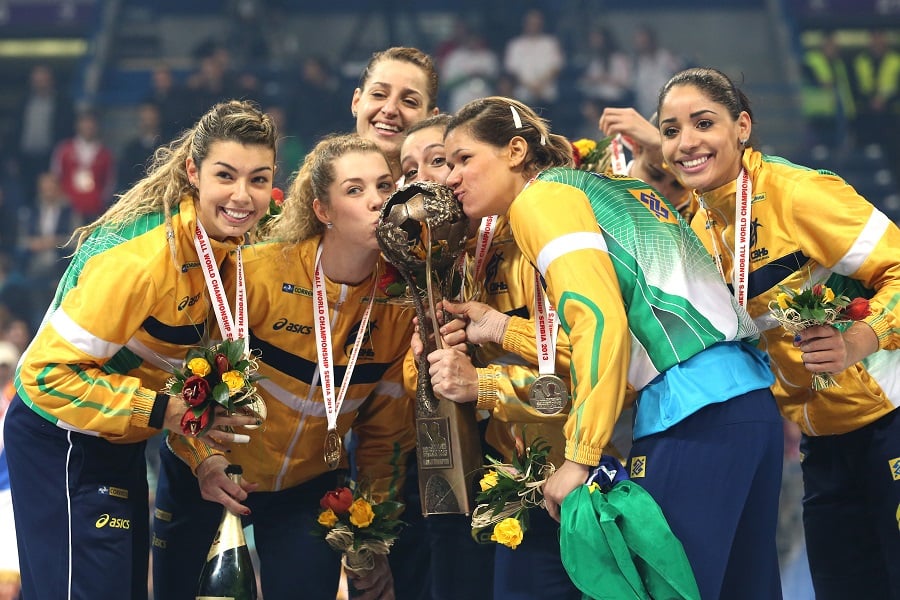
Brazil 2011: Norway stand tall ahead of mighty challenges
Norway posted a goal difference of +77 and won eight out of the nine games in the championship with the only loss coming in their first game of the preliminary round against Germany, 28:31. The Scandinavian side swept their opponents in the next eight matches, in a vintage performance especially in the knock-out phase, where they steamrolled to the gold medal, with a 32:24 clear win against France in the final. An experienced Norwegian side lifted the trophy for the second time, despite boasting one player in the All-star team, line player Heidi Loke.
China 2009: Russia’s era of dominance finishes
The second-ever tournament to be played outside Europe, in Asia, concluded Russia’s dominant era. Evgeni Trefilov’s side won their fourth title in five tournaments, a feature never repeated in history. Only three teams – Norway, Hungary and the Soviet Union – have won more medals than Russia, but none have secured more golds. However, in their previous title-winning campaigns, the Russian side have never dropped so many games like at China 2009, three. Eventually, Russia won the semi-final against Norway, 28:20, and the final against France, 25:22, thanks to outstanding outings from goalkeepers Anna Sedoykina (44% saving efficiency) and Inna Suslina (40% saving efficiency). Players like back Lyudmila Postnova, Suslina and right wing Emilia Turey won their third world title.
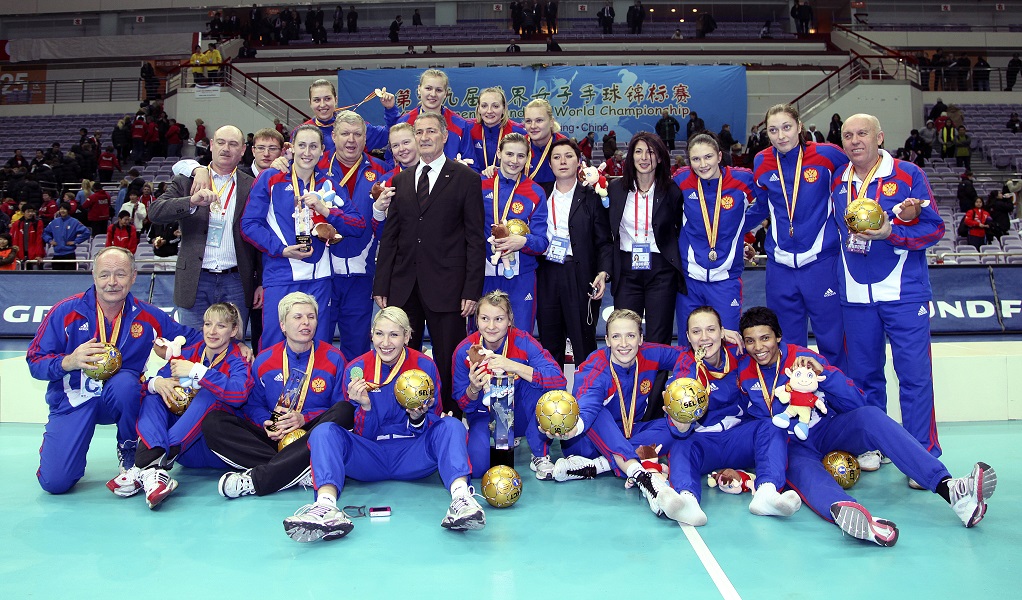
France 2007: Russia wins second gold medal in a row
Their start was neither pretty nor very efficient, but Russia had upped their game exactly when they needed it. In the quarter-finals, they squeaked a narrow win against Hungary, 36:35, despite being down 20:22 at the break, in one of the most exciting games in the history of the knockout phase in the competition. A 30:20 win against Romania in the semi-final, followed by a masterclass in defence against Norway in the final, 29:24, were enough to help Russia seal their second title in a row, in a title-winning campaign built on their outstanding attack, who scored an average of 36 goals per game.
Russia 2005: The last team to win the trophy at home
Romania in 1962 and Norway, as a co-host in 1999 were the only two teams to secure the gold medal on their home court. But Russia produced an all-time great performance in the championship they hosted, sweeping all 10 opponents on their way to their second gold medal in history, as the true golden generation of the Russian team was born. Truth to be told, no team was even close to snatch a win against Trefilov’s side, with Hungary coming the closest, in a 33:35 loss. Once again, the team, rather than one individual was the true star for Russia, who was going to become only the second team in history to retain their title three times in a row. Line player Lyudmila Bodnieva, the current coach of RHF, was named the MVP of the tournament.
Croatia 2003: France draw first blood
It was only the third time a final was decided in extra-time, but every ounce of energy was dropped in the do-or-die game between France and Hungary in Zagreb. However, the tactical nous of coach Olivier Krumbholz and the traditional strong defence from France eventually prevailed in a 32:29 win. Hungary’s excellent back duo of Bojana Radulovic, the top scorer of the tournament, and Anita Gorbicz, did not make the cut, as the MVP of the competition, French goalkeeper Valerie Nicolas, produced an epic performance in the final, like she did throughout the whole tournament.
Italy 2001: Russia establish themselves as a true powerhouse
When Lyudmila Bodnieva or centre back Irina Poltoratskaya got in the zone, Russia was unstoppable. They were the first team of the modern era to win the gold medal at the IHF Women’s World Championship without dropping a game and outscored their opponents by a superb margin of +89 goals. Neither Denmark, who lost the semi-final 25:30, nor Norway, who conceded a 25:30 loss in the final, were a match for the Russian powerhouse, as coach Evgeni Trefilov was starting to hit the right notes with his team.
Norway/Denmark 1999: Norway in seventh heaven on home court
This was the second-ever IHF Women’s World Championship co-hosted by two countries and it surely produced one of the most exciting, if not the most exciting final ever. France had already eliminated one of the hosts, Denmark, in a nail-biting quarter-final, which ended in a 19:17 French win in extra-time. The French side faced Norway in the final and the game went back and forth, needing two halves of extra-time to decide the winner. With an outstanding performance from the goalkeeping duo of Cecilie Leganger and Heidi Tjugum, Norway won their first world title, 25:24.
Germany 1997: Oh, Denmark!
Denmark were coming off of a silver medal in 1993 and a bronze medal in 1995, with the sole objective of erasing the past and securing their first-ever gold medal. With a stellar side at their disposal, who went on to win three Olympic titles, the likes of goalkeeper Lene Rantala and backs Camilla Andersen and Anja Andersen, the Danish dream team started strong and never looked back, enjoying the biggest-ever win in a final at the IHF Women’s World Championship, 33:20, against Norway. This was also the only All-Scandinavian final in the competition.
Austria/Hungary 1995: The first-ever non-European winner
Well, how about that! The Republic of Korea were Olympic winners in 1988 and 1992, but, at a Women’s World Championship, they had never finished better than the 6th place in 1982. Yet they were nothing short of superb at the first tournament held in two countries. They secured four wins in four games in the preliminary round, beat Angola and Germany in the knock-out phase, before facing off with Denmark. It was a superb game, which the Asian side won, 33:31, to book their first-ever final place. A flawless performance from the All-Star left back of the tournament, Lim O-Kyeong helped the Korean side take a 25:20 win against Hungary, who failed to win their second gold medal.
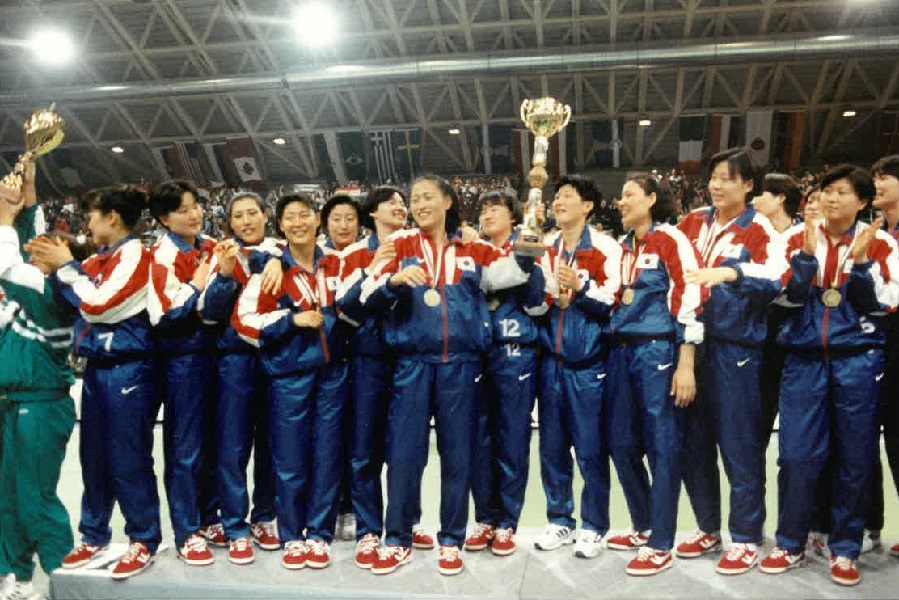
Norway 1993: An extra-time win for Germany
The German Democratic Republic dominated women’s handball in the 1970s, but after the 1990 reunification, Germany looked like a strong contender to rekindle the tradition. Yet they stopped after only one title, in 1993, despite a heavy start, which saw them lose against Romania in the preliminary round and drop to third place in the group. After that loss, Germany looked unstoppable, powered to a five-game winning streak, including a 22:21 extra-time win against Denmark to seal the gold medal.
Korea 1990: The historic treble for the Soviet Union
The first-ever IHF Women’s World Championship to be played outside Europe, Korea 1990 featured a 16-team line-up, including the German Democratic Republic and the German Federal Republic. This was also the last tournament before the dissolution of the Soviet Union, with the powerhouse finishing its history with a bang. With six wins out of six games, including a 24:22 one against Yugoslavia in the final, the Soviet team became only the second side in history to win three tournaments, after the German Democratic Republic. Maryna Bazanova was the only Soviet player to be present at all three tournaments, in 1982, 1986 and 1990.
The Netherlands 1986: The USSR strike gold twice in a row
For Zinaida Turchyna, it was the fifth medal and the second gold one at the IHF Women’s World Championship before stopping her career, a record who has been tied only by Norwegian goalkeeper Kari Aalvik Grimsbo. This time around, the Soviet side drew a game, 14:14, against Yugoslavia, but went on to win the subsequent five games, including a drubbing of Czechoslovakia in the final, 30:22, with a 14-goal outing from Natalja Morskowa, the top goal scorer of the tournament, with 61 goals, and the best-ever individual performance in the final of the world flagship competition. It was also the first tournament to feature a final, after three consecutive ones which were played in a round-robin format.
Hungary 1982: USSR secure first win
The format was altered at Soviet Union 1975 and kept for the next three championships, with 12 teams divided into three groups of four teams each. The first two teams progressed in the final group, which the Soviet Union won comfortably in this tournament, dropping a single game, 13:15 against Hungary, when they were already crowned champions.
Czechoslovakia 1978: GDR dominate once again
The third win in four championships for the German Democratic Republic spelled the end of their dominance, as the team captained by Waltraud Kretzschmar, the mother of former German player Stefan Kreztschmar, won another round-robin tournament. It was a nip and tuck battle, but the GDR won thanks to their superior goal difference (+27) against the USSR’s +23, despite the Soviet side winning the mutual game between the two sides, 14:12.
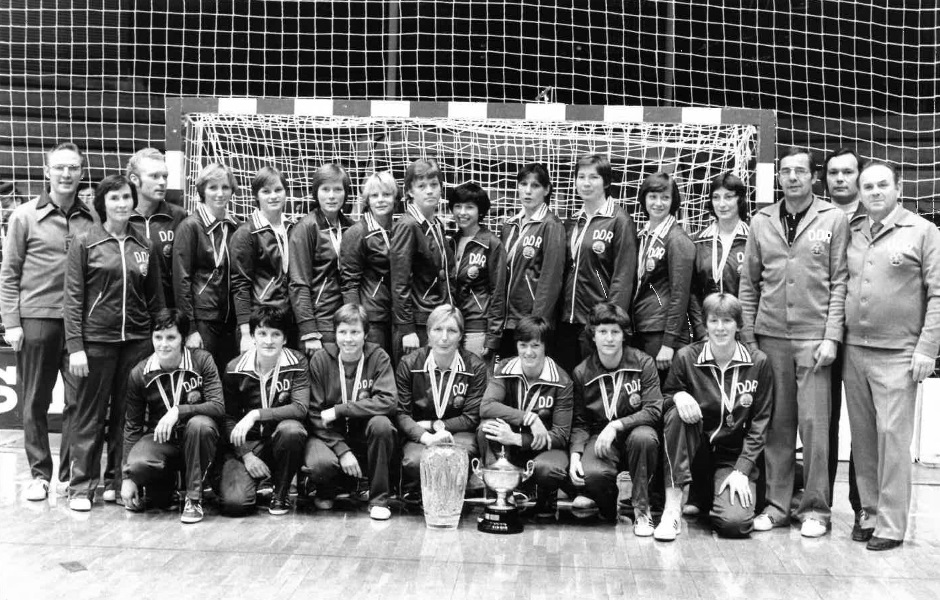
Soviet Union 1975: GDR win big for the second time
It should have been the crowning event for the Soviet Union, only for the German Democratic Republic to spoil the party. The 12 teams were divided into three groups of four teams each, with the top two from each group progressing to the final group. Having drawn against the Soviet Union, 10:10, in the group phase, the GDR went on a clean sweep in the next round and sealed their second title in three editions, winning the first title with coach Peter Kretzschmar at the helm.
Yugoslavia 1973: Maiden win for the hosts
Twelve teams were divided into four groups of three teams. Despite dropping a game against Poland, 8:9, Yugoslavia won their main round group and played the final against Romania, which they won comfortably, 16:11, securing their first-ever world title. Mara Torti, Yugoslavia’s best player, was the top scorer of the tournament with 19 goals.
The Netherlands 1971: The GDR start their domination
With three titles in four editions, the German Democratic Republic team established the first-ever dynasty at the IHF Women’s World Championship. Everything started in the Netherlands, in 1971, when they swept their opponents, including Yugoslavia in the final, 11:8, to win the trophy.
Federal Republic of Germany 1965: Hungary shock favourites to secure gold
With eight teams at the start, the sides were divided into two groups of four teams. Hungary displayed the best handball in the championship, dropping their opponents easily, and winning the group phase with three wins and a goal difference of +16. The final was the lowest scoring one in the competition, 5:3, and their win against Yugoslavia brought the first-ever title.
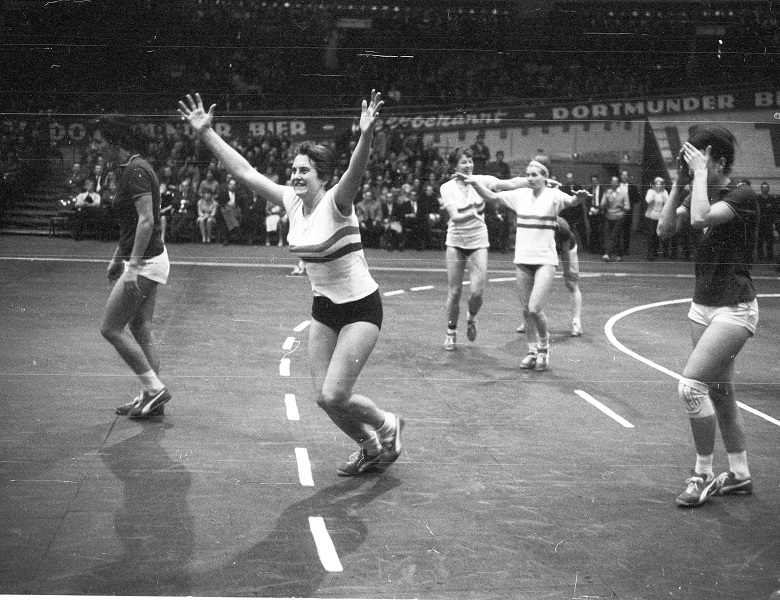
Romania 1962: The first-ever title for a host nation
Nine teams took part in the second edition of the IHF Women’s World Championship, which was hosted by Romania on a clay surface and in open-air stadiums. The attendance for the final was a whopping 15,000 fans, who cheered and celebrated a superb 8:5 win against Denmark, with two goals from the tournament top scorer, Ana Starck.
Yugoslavia 1957: Czechoslovakia enter history with a bang
The inaugural IHF Women’s World Championship tournament had a nine-team line-up, but none of them were a match for the strong Czechoslovakian side. With Pavla Bartakova in superb form, scoring 11 goals, including three in the final, the first winners never dropped a game and secured a huge 7:1 win against Hungary to lift the first trophy.
